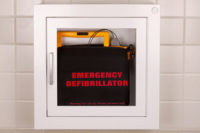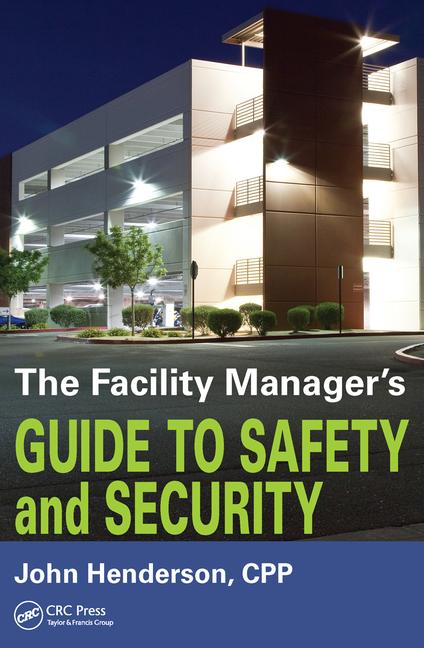Silent Knight by Honeywell, Northford, Conn., announced its IntelliKnight 5820XLfire alarm system was chosen by the nation’s sixth largest public transportation system, the Southeastern Pennsylvania Transportation Authority (SEPTA), to protect an expansive maintenance facility. The ease of use, longevity and cost-effective qualities of Silent Knight’s non-proprietary systems led SEPTA to standardize on this technology for use in dozens of its other facilities.
Two main hubs for servicing SEPTA’s 1,545 buses, 159 rail trolleys and 38 trackless trolleys, the Callowhill and Frankford Depot facilities required a large-capacity, code-compliant fire alarm with the sophistication to control various ancillary systems — all within tight budgetary parameters.
“SEPTA needed an addressable fire alarm system that would be expandable to accept future detection and/or output relay devices,” explains Robert J. Tangi, manager of contracts, EM&C administration, SEPTA, Philadelphia. “In addition, the system had to be able to communicate fire alarm data to the central monitoring company seamlessly, without the use of a separate communicator device, and be end-user friendly.”
The new system was also required by SEPTA to be non-proprietary, to avoid the high cost and service issues that could arise from being locked into one vendor for fire alarm parts, maintenance and testing. Silent Knight’s IntelliKnight system fit the bill.
“Over the years, SEPTA had a taste of many brands, but Silent Knight came through as being the easiest to use and most beneficial to them. Fidelity Alarm proposed Silent Knight systems for numerous SEPTA facilities and they’ve always been readily approved,” relates Patrick Phillips, sales manager for Fidelity Alarm Company, Philadelphia, whose company performed the upgrade.
A unique requirement, as mandated by SEPTA’s insurance provider, was the new system’s ability to shut down the facility’s diesel, oil and anti-freeze pumps in the event of a fire alarm. Fidelity Alarm tied the IntelliKnight 5820XL to the pumps for complete 24/7 monitoring and utilized relay modules to close down the fluid pipes during fire alarms. Testing the devices without shutting off the fluid pumps proved to be a challenge. Ultimately, a bypass was implemented to activate devices for testing without disturbing the pumps.
Offering some perspective on this, Tangi explains, “When installing fire alarm systems in any maintenance facility, there can be many different areas within the facility with different classifications or systems that may require different types of monitoring and/or shutdown control. The Silent Knight IntelliKnight technology was able to be configured to monitor and control these ancillary systems with ease.”
The installation team was challenged to run a significant amount of wire to tie the central fire alarm control panel to more than 300 new detectors, pull stations, sprinkler tamper and flow valves and many more devices. However, Phillips relates “the beauty of going to an addressable system is that you do not need to homerun all devices to your panel.”
To power horns and strobes, particularly in large a facility such as this, which covers an entire square city block, Phillips’ team utilizes Silent Knight’s 5895XLintelligent distributed power modules. As many as eight 5895XLs can be added to a system with each module able to be placed up to 6,000 feet away from the previous, distributing the power where it is needed. The alternative would be to utilize a large, expensive and typically proprietary network of fire alarm control panels to avoid voltage drops to horns and strobes on long wire runs.
“The Silent Knight platform allowed for an easy, straightforward installation of initiating and audio/visual device wiring within SEPTA’s maintenance facilities. This permitted the installing contractor to keep their interruption times within these facilities to a minimum,” Tangi reports.
The SEPTA maintenance facility cannot afford downtime. Immediate identification of any fire alarm issues and a quick response is critical to a facility responsible for maintaining the reliability and safety of public transportation vehicles used by more than one million patrons throughout the Philadelphia metropolitan area daily.
“Everything reports back to one central panel which tells SEPTA exactly what point went off, informing staff exactly where to go,” Phillips explains.
As part of the same contract, Fidelity Alarm also installed another Silent Knight panel with 120 devices across the street at the train wash station, which can be easily networked with the SEPTA facility’s fire alarm in the future, if desired, for easier monitoring.
“The technology, along with the ease of programming the system, is ideal for keeping construction costs low while obtaining a reliable installation, which will perform as designed for many subsequent years,” Tangi adds.
Visit www.silentknight.comfor more in-depth technical information, and to explore Silent Knight’s variety of system design tools, training offerings and technical support options – all free-of-charge. Contact a local Silent Knight Regional Managerto request a product demonstration.








